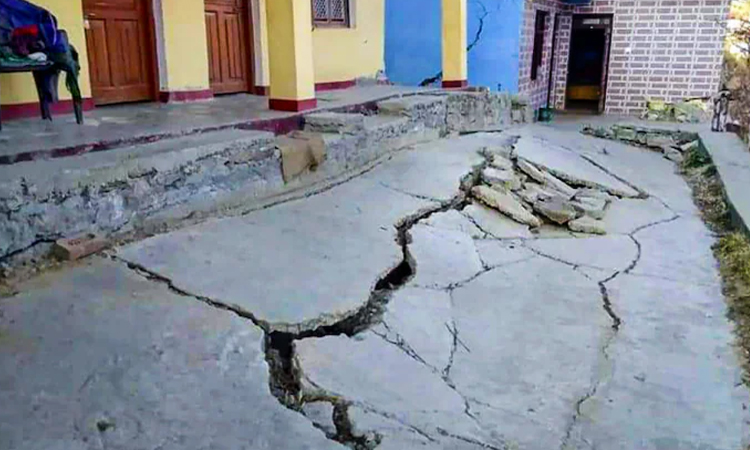Monitoring Desk
ISLAMABAD/JOSHIMATH: Residents of Joshimath, a city in northern India, have long complained to the authorities about how their homes are sinking. Since approximately 100 families had to be evacuated during the previous week, authorities were compelled to act and expedite the arrival of experts to discover the reason.
Homes no more habitable
Hundreds of homes are no longer habitable as cracks running through the city became so vast. It is feared that India could lose a key gateway to tourist expeditions and religious pilgrimages on nearby trails in the mountains, CNN said in a report.
Joshimath is located in the northeastern state of Uttarakhand, nestled on the slopes of the Himalayas and bordered by two rivers that environmentalists believe make it particularly susceptible to erosion, landslides, and earthquakes.
Policy Director Sameer Kwatra, at the Natural Resources Defence Council’s India programme, said that Joshimath, which is home to some 25,000 people, is at risk of sinking due to natural forces that are “being made worse by massive development projects as well as climate-induced heavy rainfall and flashfloods.”
A geological survey of Joshimath was carried out in August 2022 by a group of geologists, scientists, and researchers assembled by the state government of Uttarakhand.
Residents observed an accelerated land erosion rate that year, of land erosion that year, which was reportedly sparked by severe flash flooding earlier in the year and significant rainfall in October 2021. It stated that this raised concerns about the region’s vulnerability to climate change raised concerns about the region’s exposure to climate change, it was stated.
According to the survey, numerous residences in Joshimath had sustained significant damage, and others were “unsafe for human habitation” and constituted a “severe risk” to the people.
The report pointed to visible cracks in floors, walls, roads, and floors, as evidence of the sinking city and recommended stopping further construction in specific areas. However, the construction continued after a temporary shutdown by the administration.
People Forced to Leave after Crack Widened
A 38-year-old businessman Suraj Kaparuwan, who runs a small hotel in Joshimath, told CNN a year ago cracks began appearing in his field and home, but in recent months the situation has worsened.
“About a year ago, the field’s hairline cracks started appearing and have been widening over time, especially in the last two months. They are now about 3 feet wide,” he told CNN.
Last Wednesday evening, Kaparuwan’s two sons and wife left their home and moved to another city, Srinagar Garhwal.
Pushkar Singh Dhami, Chief Minister of Uttarakhand visited the affected areas last Saturday, inspecting residents’ homes who fear the structures may collapse. “To keep everyone safe is our priority,” he said.
Joshimath and its surrounding areas have been sinking at a pace of 6.5 centimeters (2.5 inches) each year, according to two-year research by the Indian Institute of Remote Sensing, conducted between July 2020 and March 2022.
Local authorities assert that the latest fissures are wider and more numerous than those they have previously observed.


























